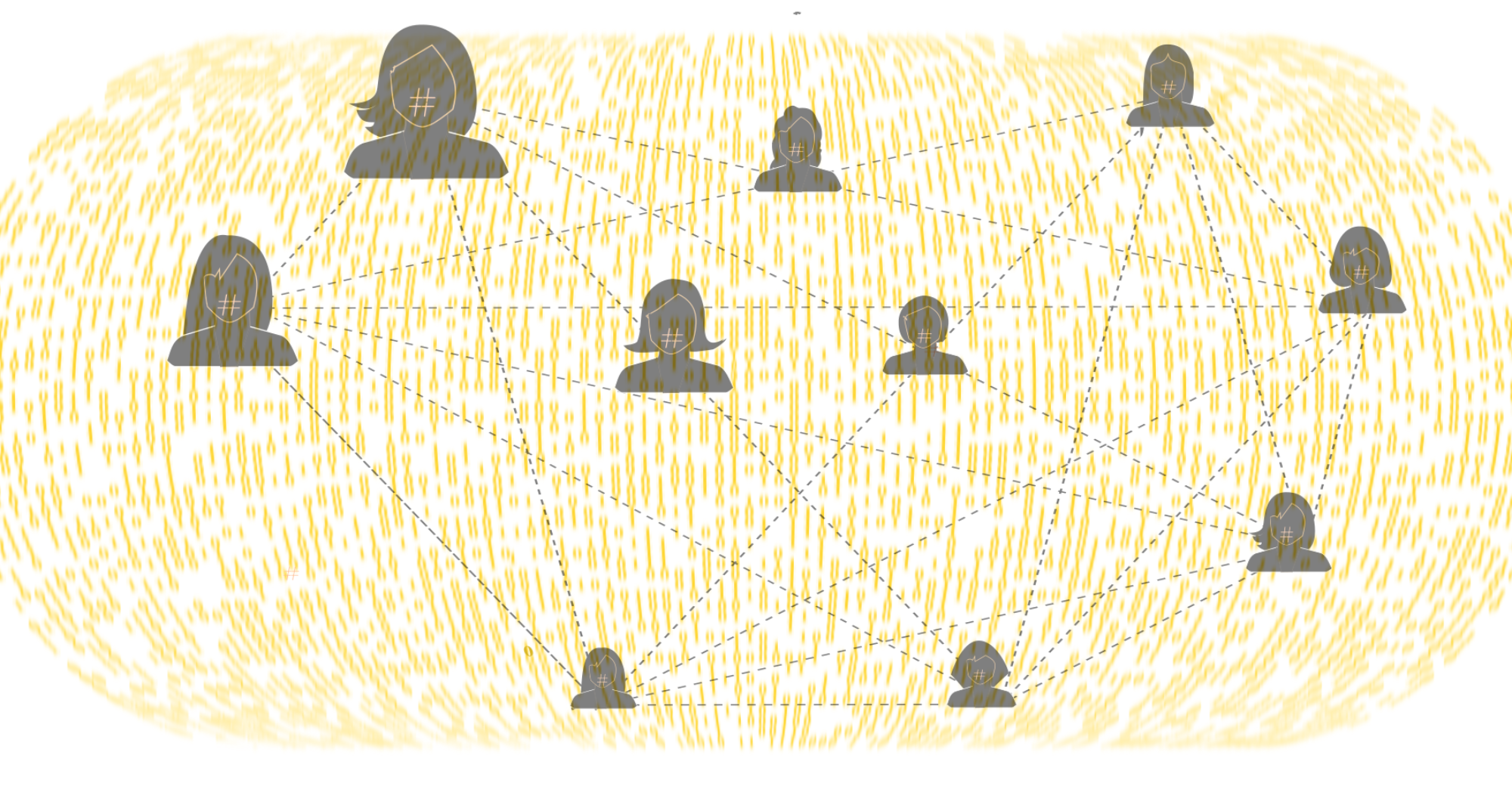1 Feb 2018, Thursday
Day 1
9.00 AM to 9.30 AM
Registration
9.30 AM to 10.00 AM
Official Opening:
R. Ramakumar, Dean, School of Development Studies, TISS Mumbai
Asha Achuthan, Advanced Centre for Women Studies, TISS Mumbai
Anita Gurumurthy, IT for Change, Bengaluru
10.00 AM to 11.30 AM
Session 1. Online GBV: State of Play
This session aims at interrogating the pervasive phenomenon of gender-based cyber
violence, from a feminist standpoint. It will reflect upon the manifestations of gender-
based violence in digital times, and the adequacy of existing legal, institutional and
socio-cultural responses to the issue. Future directions for feminist action and socio-
cultural transformation will be flagged.
Speakers:
J.Devika, Centre for Development Studies, Trivandrum
Shehla Rashid, Student, Jawaharlal Nehru University, New Delhi
Justice Prabha Sridevan (retd.), Madras High Court, Chennai
Chair: Lakshmi Lingam, School of Media and Cultural Studies, TISS, Mumbai
(15 minutes per speaker, followed by discussion and comments by the Chair)
11.30 AM to 12.00 noon
Tea
12.00 noon to 1.15 PM
Session 2. Cartographies of the online: Revisiting locations and intersections
The session will explore how social identity shapes experiences of the online. It will
reflect upon how hegemonic Internet cultures normalise sexism, misogyny and
gender-based violence. In particular, it will demonstrate how the voices of those who
challenge status-quoist gender orders – women journalists, dalit women, individuals
of alternative gender identity and sexual orientation – are marginalised in virtual
spaces.
Paper Presentations (each for 10 minutes, followed by a discussion and
comments by the Chair):
Hindi print women journalists’ experiences of misogynistic virtual spaces![]()
Ranu Tomar, School of Media & Communication, Jagran Lakecity University, Bhopal
Reinforcement of sexism through memes ![]()
Aalen Issac, Karmaveer Bhaurao Patil College, Mumbai
Mapping gender-based violence through ‘gendertrolling’ ![]()
Asaf Ali Lone, Independent researcher & Saumya Bhandari, Ahmedabad University
Gender, caste and technology in Maratha Kranti (Muk) Morch ![]()
Archana Kaware, TISS, Mumbai
Chair: Bishakha Datta, Point of View, Mumbai
1.15 PM to 2.15 PM
Lunch
2.15 PM to 3.30 PM
Session 3 (Part 1). Laws and law enforcement: Caught between old rights, new
violations?
In India, the legal provisions that can be invoked in cases of gender-based cyber
violence fall under two main laws: the Indian Penal Code and the Information
Technology Act. The Indian Penal Code is a pre-digital law steeped in paternalism
and moral censorship, with an inadequate grasp of the new manifestations of gender
based violence. As a business-oriented law, the Information Technology Act is gender
neutral and marred by a piecemeal approach to gender-based violence. Through an
examination of case histories and a critical reading of specific sections of these laws,
this session will demonstrate challenges for law and law enforcement, in ensuring
access to justice for victims of gender-based cyber violence.
Paper presentations (each for 10 minutes, followed by a discussion and
comments by the Chair):
Unpacking case histories from counselling centres and cyber crime cells ![]()
Megha Joseph/Anu Swaraj/Nargees Basheer, National University of Advanced Legal Studies,
Kochi
Unpacking the law enforcement quandary ![]()
Amrita Vasudevan, IT for Change, Bengaluru
Digital misogyny as hate speech: Exploring legal implication ![]()
Srijan Sandip Mandal & Sreeparna Chattopadhyay,
Srishti Institute of Art, Design and Technology, Bengaluru
Chair: Justice Prabha Sridevan (retd.), Madras High Court, Chennai
3.30 PM to 4.00 PM
Tea
4.00 PM to 5.15 PM
Session 3 (Part 2). Laws and law enforcement: Caught between old rights, new
violations?
Paper presentations (each for 10 minutes, followed by a discussion and
comments by the Chair):
Introspecting the gaps between cyber crimes against women and laws: A study of West
Molly Ghosh, Barrackpore Rastraguru Surendranath College, Barrackpore
Guavas and genitals: A research study on Section 67 of the IT Act ![]()
Smita Vanniyar, Point of View, Mumbai
Gendered discourse: Technology mediated violence and women students![]()
B. Radha & R. Nivetha, Manonmaniam Sundaranar University, Tirunelveli
Tahmina Rahman & Zakir Uzzaman Khan, Article 19, Bangladesh
Chair: Kiruba Munuswamy, Advocate, Supreme Court of India, New Delhi
6:00 PM to 7.45 PM
Session 4. Taking positions within and vis-a-vis institutions: interpreting the law,
negotiating the law
This session will be a conversation with actors addressing gender-based violence in
various institutional spaces – Special Cell for Women and Children, Cyber-cell of the
police, Gender Amity Committee – TISS, alongside representatives of social media
companies. The discussion will examine the deployment of existing laws and how the
spirit and text of the law are negotiated by different actors and bodies, within
institutions. Challenges to, as well as opportunities for, rights and justice will be
highlighted and transformative potential for conversations across institutions
explored.
Introduction to the issues:
Veena Gowda, Advocate, Bombay High Court, Mumbai
Panel Respondents:
Trupti Panchal, Special Cell for Women and Children, Mumbai
Karuna Nundy, Advocate, Supreme Court of India, New Delhi
Shewli Kumar, Gender Amity Committee, TISS, Mumbai
Ditilekha Sharma, TISS Queer Collective
Moderator: Asha Achuthan, Advanced Centre for Women’s Studies, TISS Mumbai
(10 minutes per speaker, followed by an open discussion.)
7.45 PM to 8.15 PM
Open Mike, Open Space
– Students share their artistic impressions – memes/posters/poetry on online GBV.
– The Neo-World: A play by Chayanika Iyer and Kalpita Raut, Wilson College Mumbai, with
conceptual support from Biraj Mehta
8:30 PM
Participants' Dinner
2 Feb 2018, Friday
Day 2
9.30 AM to 11.15 AM
Session 5. Legal ambiguities, cultural dilemmas: Walking the long road to
justice for gender-based cyber violence (Talk show format)
As feminists have long argued, the formal legal system is patriarchal and politicised.
In the case of gender-based violence, social prejudices separate “genuine victims”
from “those without moral character” in police stations, crisis helplines run by the
state, and even in court rooms. Further, gender norms may reinforce moral
protectionism among those entrusted with enforcing the law. Feminist critiques have
noted how laws created with the most progressive intentions can be reduced to
instruments that further patriarchal cultures. The talk show attempts to provoke a
dialogue around the following questions:
- Is legal reform a useful pathway in gender-based cyber violence? Why/why
not?
- If yes, what are the constituent elements of such legal reform that is grounded
in a feminist jurisprudence?
- Do we need a new law on e-VAW?
- What are the solutions we should turn to, outside the project of legal reform?
Speakers:
Vidya Reddy, Tulir Center for the Prevention and Healing of Child Sexual Abuse,
Chennai
Geeta Ramaseshan, Advocate, Madras High Court, Chennai
Namita Aavriti, GenderIT.org
Nandini Chami, IT for Change, Bengaluru
Moderator: Anita Gurumurthy, IT for Change, Bengaluru
11.15 AM to 11.45 AM
Tea
11.45 AM to 1.00 PM
Session 6. Structures of digital technology: The governance quandary
From virtual assistants to surveillance gadgets, the rapid onslaught of new digital
technologies is reconstituting our social world. This session will analyse how the
structures of techno-materiality encode social hierarchies (gender, caste, class, race),
contributing to the normalisation of gender-based violence. It will also speak to the
issue of the liability of Internet intermediaries such as Facebook, Twitter etc., for acts
of gender-based violence perpetrated on their platforms.
Paper presentations (each for 10 minutes, followed by a discussion and
comments by the Chair):
Moving forward: cyber-misogyny and creating safer spaces online ![]()
Archismita Choudhury, Breakthrough India, New Delhi
Sexual violence depicted against women in video games: The effect of virtual world
Ahmar Afaq, Symbiosis Law School – Hyderabad &
Mohd.Imran, Aligarh Muslim University, Murshidabad Centre
Are smart device based virtual assistants capable of assisting with gender based
Radhika Radhakrishnan, TISS, Mumbai
Technological architectures and the law – a feminist critique
Ingrid Brudvig, Web Foundation, South Africa
Chair: Kalpana Sharma, EPW
1.00 PM to 2.00 PM
Lunch
2.00 PM to 3.15 PM
Session 7. Cyber-feminism and digital activism: New frontiers in theory and
practice
This session will deliberate upon what a cyber-feminist praxis can offer in terms of
reclaiming the emancipatory potential of the Internet for feminism. Some key
questions that it will deliberate upon: What lessons can we learn from older feminist
movements in approaching the digital? What are some subversive practices currently
at play in online spaces that can help us trouble gender hierarchies?
Paper presentations (each for 10 minutes, followed by a discussion and
comments by the Chair):
Why loiter – women claiming online public spaces
Lakshmi Lingam, Isha Bhallamudi and Neomi Rao, School of Media and Cultural Studies,
TISS, Mumbai
Internet as a new feminist frontier
Shreya Sen, Nazdeek, New Delhi
How contemporary female graphic artists are addressing patriarchy ![]()
Shreya Sethuraman, Independent Researcher, New Delhi
Dyuti Jha, Center for Health Research Development, New Delhi
Chair: Niranjana. P, Independent Researcher, Mumbai
3.15 PM to 3.45 PM
Tea
3.45 PM to 4.30 PM
Reflections and concluding remarks from the organisers
Asha Achuthan, Advanced Centre for Women’s Studies, TISS, Mumbai and
Anita Gurumurthy, IT for Change, Bengaluru

